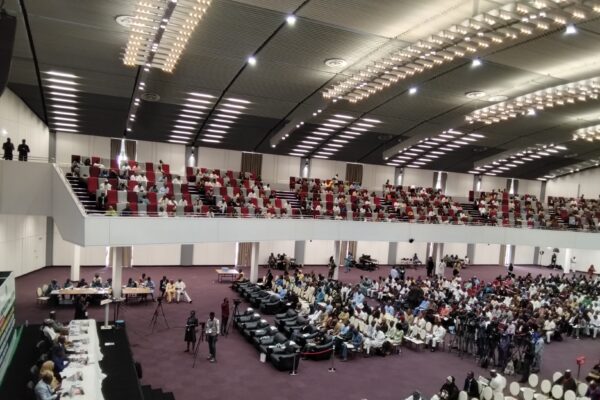Nigeria’s tourism industry has been absent from international trade shows for almost a decade.

Minister of Tourism
However, thanks to the efforts of the new Minister of Tourism, Mrs Lola Ade-John, this is about to change.
According to the minister, ‘‘taking tourism to the community level, showcasing the hidden gems of the villages in all regions of our picturesque and diverse country, is the essence of creating sustainable tourism in Nigeria.’’
‘‘All of these have a combined a transformative power with ‘immense potential for our nation.’’ This is as she added that tourism products require adequate publicity, development, promotion and maintenance. The minister remarked that there are numerous challenges that plagued the industry, just as she assured that, ‘‘the government will gradually, speedily and successfully overcome these challenges, with guidance, support and collaboration of all stakeholders .’’
This showed why Nigeria made its comeback at the just concluded World Travel Market (WTM) London 2023, with support from the Lagos State Tourism and the West Africa Tourism Organisation (WATO), as well as the private sector.
Despite some challenges with the stand, position and setup plus meeting the deadline, the return of Nigeria’s tourism industry has been met with great interest and positive feedback, indicating a promising future.
The National Association of Nigeria Travel Agencies (NANTA) was well-represented at the show, bringing a lively atmosphere to the event.

Nigeria’s tourism industry expresses its gratitude to the organizers of WTM London for their efforts in making this event a success.

The coubtry’s tourism industry is characterized by a rich cultural heritage, diverse landscapes, and historical sites among others. Some key aspects include:
1. Cultural Diversity: Nigeria is home to over 250 ethnic groups, each with its unique customs, traditions, and festivals. This cultural diversity provides a rich tapestry for tourists interested in exploring different lifestyles and traditions.
2. Natural Attractions: Nigeria boasts diverse ecosystems, including savannahs, rainforests, and coastal areas. Tourists can visit places like the Yankari National Park for wildlife and nature experiences, or the Erin Ijesha Waterfall for a natural spectacle and the eco-friendly Green House Farms and resort in Karshi Abuja.
3. Historical Sites: The country has historical landmarks like the ancient city of Benin with its walls and moats, the Sukur Cultural Landscape (a UNESCO World Heritage Site), and the Ogbunike Caves, offering insights into Nigeria’s historical and cultural evolution.
4. Art and Craft: Nigeria has a thriving art scene, with traditional art, contemporary galleries, and vibrant markets. Cities like Lagos host art festivals, and the Nike Art Gallery showcases the country’s artistic talent.
Despite these attractions, challenges like inadequate infrastructure, occasional insecurity concerns like other countries, and inconsistent promotion have impacted the growth of the tourism industry. Improving these aspects, along with sustained efforts in marketing Nigeria’s unique offerings, could contribute to the industry’s development. The new Minister of Tourism have already showed her capacity from the inception seen on meeting and engaging stakeholders in the industry.
—————————————————————————————————————————————
Your help to our media platform will support the delivery of the independent journalism and broadcast the world needs. Support us by making any contribution. Your donation and support allows us to be completely focus, deeply investigative and independent. It also affords us the opportunity to produce more programmes online which is a platform universally utilised.
Thank you.
Please click link to make – DONATION










